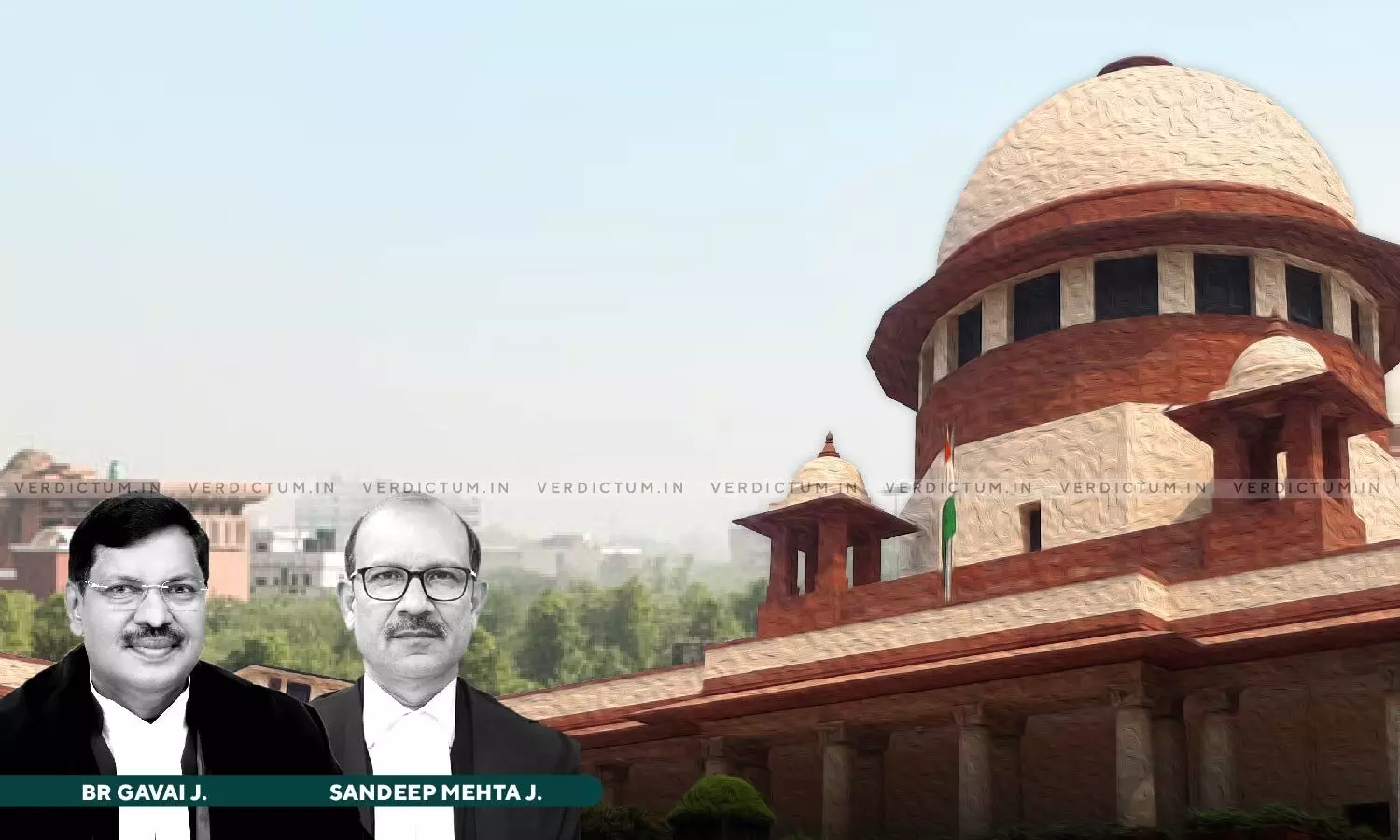
Bald Plea Of Denial By Accused To Gravely Incriminating Circumstance Is Insufficient To Absolve Him Of Burden Cast Upon Him U/S 106 Evidence Act: SC
 |
|The Supreme Court has highlighted that a bald plea of denial by the accused to a gravely incriminating circumstance is not sufficient to absolve him of the burden cast upon him by virtue of Section 106 of the Indian Evidence Act, 1872.
In that context, the Bench of Justice BR Gavai and Justice Sandeep Mehta observed that, "The circumstances leading to murder of Usha were in the exclusive knowledge of the appellant. He has offered no explanation as to the manner in which Usha was strangled to death within the confines of the room where only he and the deceased were present. The bald plea of denial offered by the accused by way of an explanation to this gravely incriminating circumstance is not sufficient to absolve him of the burden cast upon him by virtue of Section 106 of the Indian Evidence Act, 1872."
In this case, the appeal challenged a judgment upholding a conviction and sentence under Section 302 of the Indian Penal Code. The Trial Court had sentenced the appellant to life imprisonment along with a fine of Rs. 2000.
The case stemmed from the death of the appellant's wife Usha, who was found dead in her house. Marks of violence were observed on her body, and a confession note allegedly written by the appellant was discovered at the crime scene.
The appellant was arrested nearly ten years after the incident, and his handwriting was matched with the confession note by a handwriting expert.
During the trial, the complainant, Ashok Kumar Pathak, who witnessed certain events related to the case, could not be produced in court despite efforts to locate him. However, his earlier sworn statement was admitted as evidence.
The trial court relied on the confession note and circumstantial evidence to convict the appellant.
The Apex Court observed that, "the circumstances of motive, last seen, confession and abscondence from the crime scene after committing the crime are all spoken to by the witness Ashok Kumar Pathak(PW-1)... recorded on sworn affirmation during the proceedings under Section 299 CrPC. It may be stated here that Ashok Kumar Pathak had no motive whatsoever to falsely implicate the accused appellant for the murder of Usha."
It was further held that the statement of Ashok Kumar Pathak by itself provided a complete chain of circumstantial evidence sufficient to establish the guilt of the accused-appellant. In light of the same and of the provisions of Section 299 CrPC read with Section 33 of the Indian Evidence Act, the Court upheld the findings of the Trial Court.
Hence, the appeal failed and the appellant was directed to surrender and serve his sentence.
Cause Title: Sukhpal Singh vs NCT of Delhi
Click here to read/download the Judgment